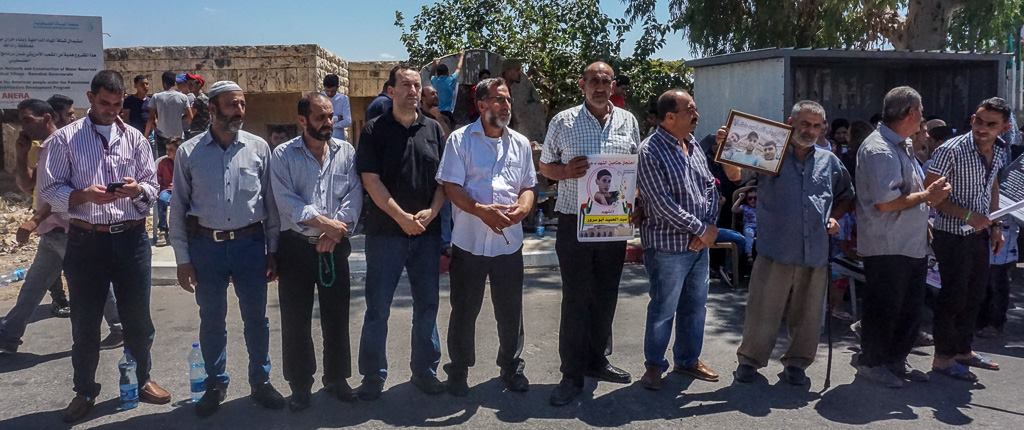Category: Reports
-
Palestinians demonstrate for Israel to return the dead bodies of their sons, husbands and fathers
27th July | International Solidarity Movement, Ramallah Team | Deir Abu Mash’al Palestinians demonstrate for Israel to return the dead bodies of their sons, husbands and fathers Some 300 Palestinans from the West Bank (including occupied East-Jerusalem) gathered today in Deir Abu Mash’al to protest Israels practice of withholding the bodies of dead…
-
Israeli and international protesters demonstrated at Gaza fence in solidarity with The Great Return March
20th July 2018 | Close to the Gaza fence Israeli and international protesters demonstrated at Gaza fence in solidarity with The Great Return March On the 20th of July, Friday afternoon, a group of anti-zionist Israeli and international solidarity activists approached the Gaza siege fence at the same time that Gazans gathered by the fence on…
-
Israeli forces cut water supply to village in Jordan Valley
From Jordan Valley Solidarity Saturday 17th July On Thursday 13th July Israeli forces came to the village of Bardala in the northern Jordan Valley, Palestine, and confiscated water pipes that supply water to the village, cutting off the water supply for all of the farmers in the village. The villagers are currently trying to…


